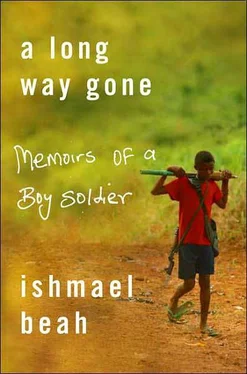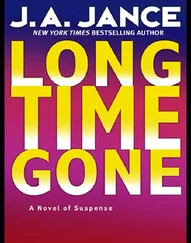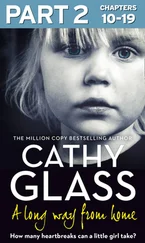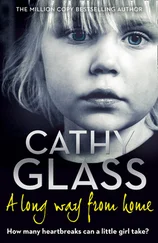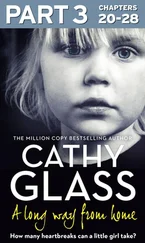ONE OF THE UNSETTLING THINGSabout my journey, mentally, physically, and emotionally, was that I wasn’t sure when or where it was going to end. I didn’t know what I was going to do with my life. I felt that I was starting over and over again. I was always on the move, always going somewhere. While we walked, I sometimes lagged behind, thinking about these things. To survive each passing day was my goal in life. At villages where we managed to find some happiness by being treated to food or fresh water, I knew that it was temporary and that we were only passing through. So I couldn’t bring myself to be completely happy. It was much easier to be sad than to go back and forth between emotions, and this gave me the determination I needed to keep moving. I was never disappointed, since I always expected the worst to happen. There were nights when I couldn’t sleep but stared into the darkest night until my eyes could see clearly through it. I thought about where my family was and whether they were alive.
One night while I sat outside in a village square thinking about how far I had come and what might lie ahead, I looked into the sky and saw how the thick clouds kept trying to cover the moon, yet it would reappear again and again to shine all night long. In some way my journey was like that of the moon—although I had even more thick clouds coming my way to make my spirit dull. I remembered something that Saidu had said one evening after we had survived another attack by men with spears and axes. Jumah, Moriba, and Musa were asleep on the verandah we occupied. Alhaji, Kanei, Saidu, and I were awake and quietly listening to the night. Saidu’s heavy breathing made our silence less unbearable. After a few hours had gone by, Saidu spoke in a very deep voice, as if someone were speaking through him. “How many more times do we have to come to terms with death before we find safety?” he asked.
He waited a few minutes, but the three of us didn’t say anything. He continued: “Every time people come at us with the intention of killing us, I close my eyes and wait for death. Even though I am still alive, I feel like each time I accept death, part of me dies. Very soon I will completely die and all that will be left is my empty body walking with you. It will be quieter than I am.” Saidu blew on the palms of his hands to warm them and lay on the floor. His heavy breathing intensified and I knew he had fallen asleep. Gradually, Kanei and then Alhaji fell asleep. I sat on a wooden bench against the wall and thought about Saidu’s words. Tears formed in my eyes and my forehead became warm, thinking about what Saidu had said. I tried not to believe that I too was dying, slowly, on my way to find safety. The only time I was able to fall asleep that night was when the last morning breeze, the one containing the irresistible urge to sleep, saved me from my wandering mind.
Even though our journey was difficult, every once in a while we were able to do something that was normal and made us happy for a brief moment. One morning we arrived at a village where the men were getting ready to go hunting. They invited us to join them. At the end of the hunt, one of the older men shouted, pointing at us, “We are going to feast tonight, and the strangers are welcome to stay.” The other men clapped and began walking on the path back to the village. We walked behind them. They sang, carrying their nets and the animals—mostly porcupines and deer—that had been caught on their shoulders.
Upon our arrival at the village, the women and children clapped to welcome us. It was past midday. The sky was blue and the wind was beginning to pick up. Some of the men shared the meat among several households, and the rest was given to the women to be cooked for the feast. We hung about in the village and fetched water for the women who were preparing the food. Most of the men had returned to work the farms.
I walked around the village by myself and found a hammock on one of the verandahs. I lay in it, swinging slowly to get my thoughts in motion. I began to think about the times when I visited my grandmother and I would sleep in the hammock at the farm. I would wake up staring into her eyes as she played with my hair. She would tickle me and then hand me a cucumber to eat. Junior and I would sometimes fight for the hammock, and if he got it, I would trick him by loosening its ropes so that he would fall once he sat in it. This would discourage him, and he would go about the farm doing something else. My grandmother knew about my tricks and made fun of me, calling me carseloi , which means spider. In many Mende stories the spider is the character that tricks other animals to get what he wants, but his tricks always backfire on him.
As I was thinking about these things, I fell out of the hammock. I was too lazy to get up, so I sat on the ground and thought about my two brothers, my father, mother, and grandmother. I wished to be with them.
I put my hands behind my head and lay on my back, trying to hold on to the memories of my family. Their faces seemed to be far off somewhere in my mind, and to get to them I had to bring up painful memories. I longed for the gentle, dark, and shiny old hands of my grandmother; my mother’s tight enclosed embrace, during the times I visited her, as if hiding and protecting me from something; my father’s laughter when we played soccer together and when he sometimes chased me in the evening with a bowl of cold water to get me to take a shower; my older brother’s arms around me when we walked to school and when he sometimes elbowed me to stop me from saying things I would regret; and my little brother, who looked exactly like me and would sometimes tell people that his name was Ishmael when he did something wrong. I had trouble conjuring up these thoughts, and when I finally ventured into these memories, I became so sad that the bones in my body started to ache. I went to the river, dove into the water, and sat at the bottom, but my thoughts followed me.
In the evening after everyone had returned to the village, the food was brought outside to the village square. It was divided among plates and seven people ate from each plate. After the meal, the villagers started playing drums, and we all joined hands and danced in circles under the moonlight. During an interval after several songs, one of the men announced that when the dancing had been exhausted, “whenever that will be,” he jokingly said, “the strangers will tell us stories about where they are from.” He lifted his hands and motioned for the drummers to continue. During the festivities I thought about the biggest celebration we used to have in my town at the end of the year. The women would sing about all the gossip, the dramas, the fights, and everything that had happened that year.
Would they be able to sing about all that will happen by the end of this war? I thought.
I also wondered a bit why the villagers were so kind to us, but I didn’t dwell on these thoughts, because I wanted to enjoy myself. The dance never ended that night and we had to leave early the next day, so we left as most of the villagers slept. We carried with us a plastic gallon of water and some smoked meat we had been given, and the old people we passed, sitting on their verandahs, waiting to be warmed by the morning sun, waved and said, “May the spirit of the ancestors be with you, children.”
When we were walking, I turned around to see the village one last time. It was yet to be born for that day. A cock crowed to dispatch the last remains of night and to mute the crickets that couldn’t let go of the darkness of their own accord. The sun was slowly rising but had already begun casting shadows on the huts and houses. I could still hear the drums echoing in my head from the previous night, but I refused to be happy. When I turned away from the village, my traveling companions were dancing in the sand, mimicking some of the dances we had seen.
Читать дальше
